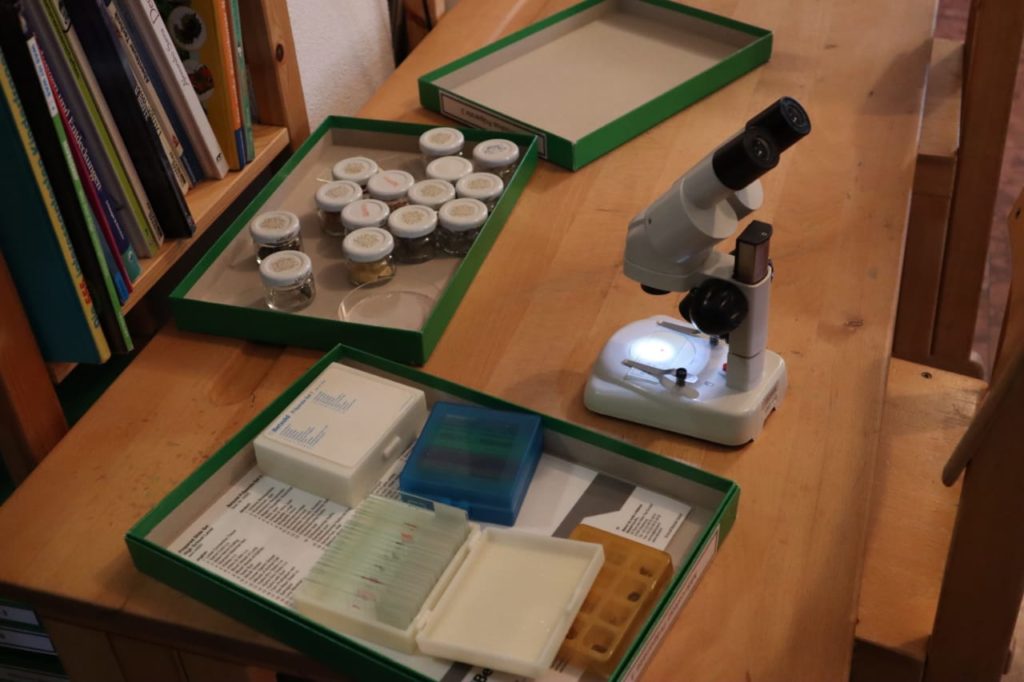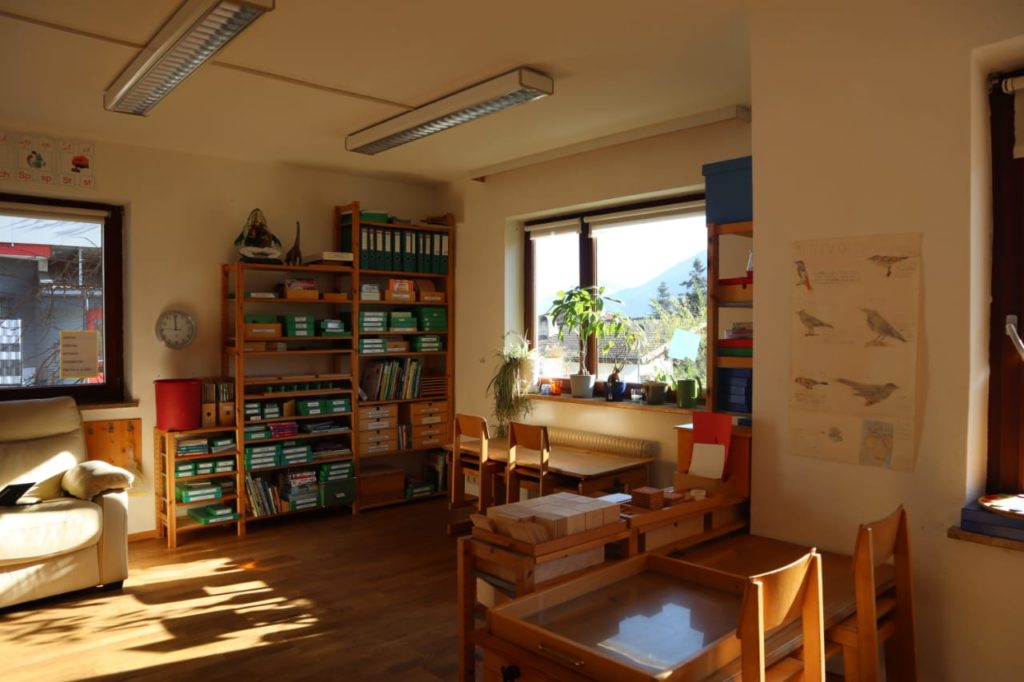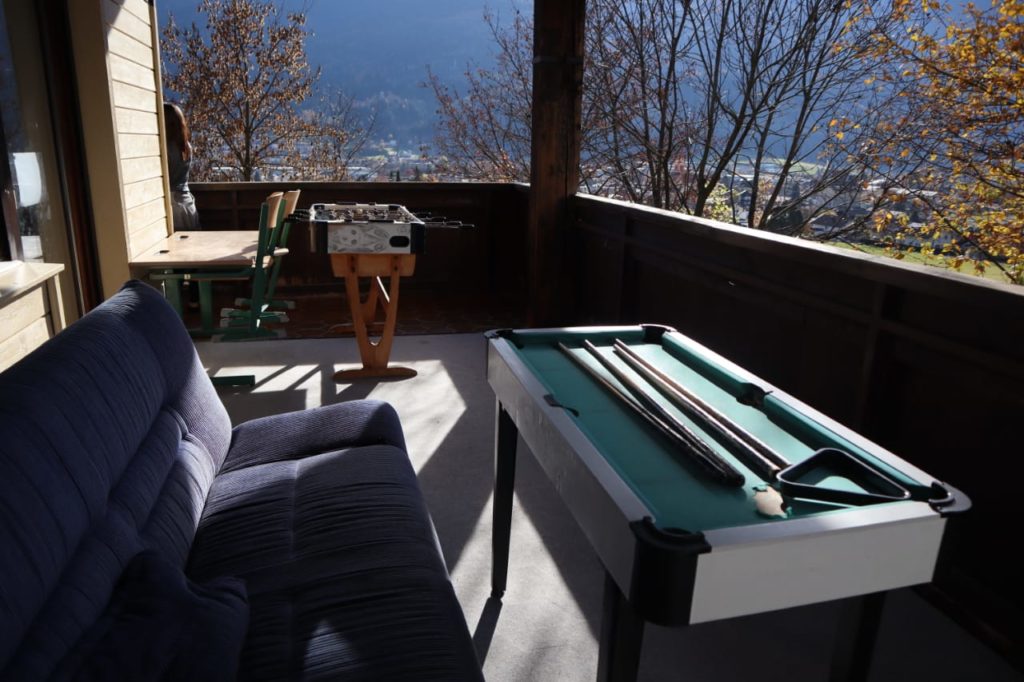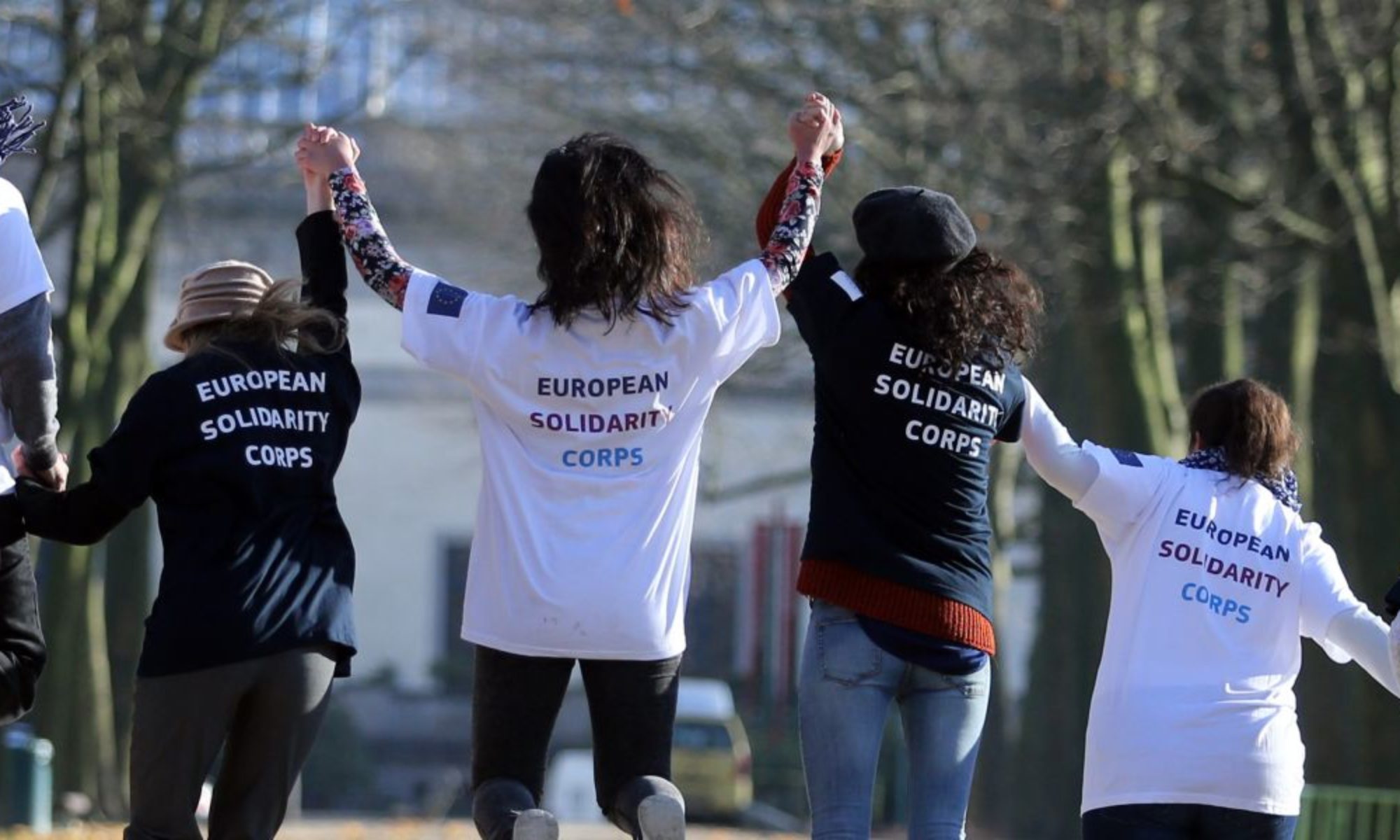Last Sunday I had the opportunity to visit the Montessori school in Telfs, guided by two lovely workers: Zita – teacher, former Esk volunteer and Foteini- current Esk volunteer.
The Montessori Method of Education is different from the school system that we know, what we would define as „regular“.
It emphasizes independence and it views children as naturally eager for knowledge and capable of initiating learning in a supportive environment. It discourages some conventional measures of achievement, such as grades and tests. At the school in Telfs, they welcome kids from 5 to 15 years old.
I was not aware of the details of that method before, and when I got to know them, they sparked some reflections. I think we could all take inspiration and example from that and ask ourselves some important questions.
- Why do I want the things that I want?
In Montessori School, there is a general program that teachers follow and three main subjects : German, Mathematics, and the Science of the Cosmos. Two things really stood out to me regarding the academical program. Firstly, one day per week is dedicated to contact with Nature. Secondly, children can choose to deepen a specific topic according to their predispositions and inclinations. There is no particular ranking or order that they have to respect, or judgement.
As a result, they have the opportunity to get in touch with their true preferences and what gives them joy and purpose. They are free from a very young age to unleash their potential and their natural curiosity.
Why is it so important to ask ourselves this question as adults? To understand how much of what we think we want is spontaneous and genuine and therefore brings us motivation and meaning, and what was learned as a result of a poor and discriminatory education system. Often we are taught that some passions belong to a lower category of skills, or maybe they won’t get us anywhere in life. With these premises it is undoubtedly more difficult to discover what gift we are meant to bring as unique individuals in this World. Which is a crucial part of living a life filled with relevant and positive experiences.

- Where do I create my home?
The Montessori School in Telfs looks like a big family house. When the students get inside, they take off their shoes and wear slippers. In the secondary class, they cook 3 times per week , planning the whole menu ahead. Classes eat all together and clean after themselves, they also take care of laundry and ironing. This is, in my opinion, a good method to learn responsibility, obviously. But other that than, it pushes people to give a personal contribution to their environment. In today´s society we tend to focus more on permanent achievement rather that how important it is to grow together with our surroundings, developing, learning about it and also shaping it, somehow. We often forget that our voices and actions matter. We are connected and we can create meaningful experiences for ourselves.

- DO I SPEND ENOUGH TIME IN NATURE?
Many of us are getting progressively further from mother nature. This is understandable and logical considering urbanization. Still, we should keep in mind how important is for us, as humans, to form a relationship with grass, lakes, rivers and mountains. I think this is crucial in the teaching of Montessori School, kids spend one day per week immersed in the green. Here the territory is so amazingly beautiful and nature is rich, which makes it simples to just take a walk through the backyard and be in the forest.
Every time we step into nature and reduce external distractions we are recharging and meditating. Nature heals. It´s scientifically proven that <<Exposure to nature not only makes you feel better emotionally, it contributes to your physical wellbeing, reducing blood pressure, heart rate, muscle tension, and the production of stress hormones>>.

I think everyone can take inspiration and example from this method of learning. As individuals and as a collective.
